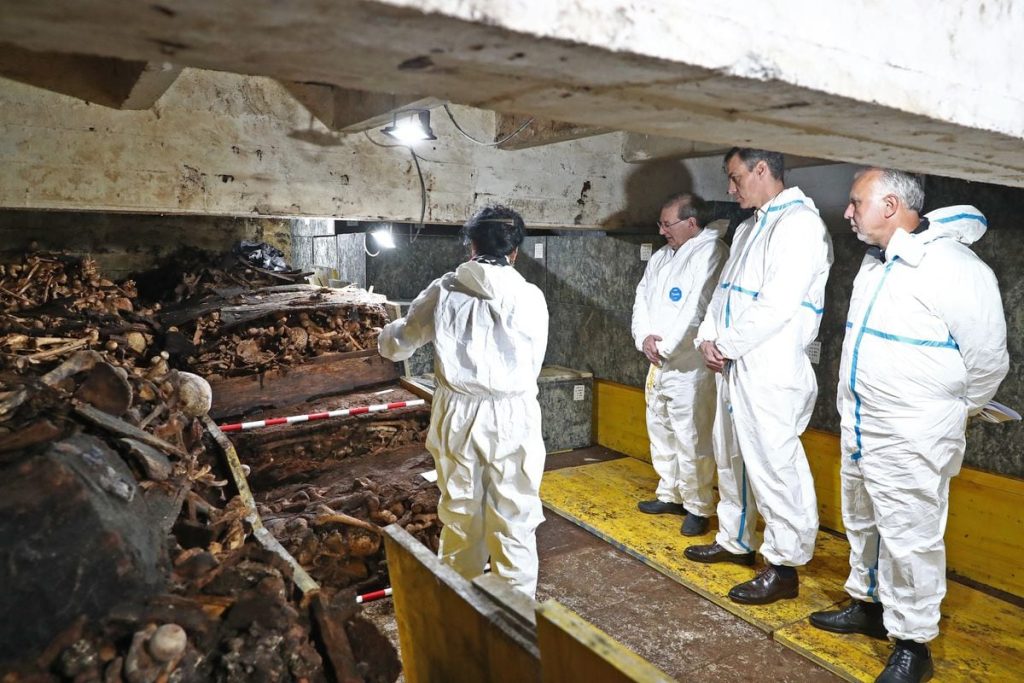The government plans to take the offensive against the regional memory laws of the Aragon, Castilla y León, and Valencia governments to European and international institutions, replacing them with laws of “concord”. They will challenge these initiatives at the Constitutional Court if the regional governments do not rectify, and also bring the issue to the UN, Council of Europe, and European Parliament for evaluation. The suppression of regional laws may slow down the implementation of the national Memory Democratic Law. Prime Minister Sanchez criticized the actions of the PP and Vox parties, emphasizing the importance of justice, reparation, and dignity for all victims of the war and dictatorship.
The Minister of Territorial Policy explained that the government would attempt to negotiate with the regional governments of the PP and Vox parties before resorting to the Constitutional Court. The removal of regional laws makes it challenging to locate victims, as it eliminates the regional map of mass graves. The PP and Vox parties in Castilla y León and Valencia presented proposals to repeal regional memory laws and replace them with laws of “concordance”. The government stresses the importance of memory for democracy and the need to fulfill its debt to those who fought for freedom and democracy in Spain.
The Government plans to seek international evaluation of the regional governments’ actions by approaching the UN, the Council of Europe, and the European Parliament. They aim to compare these measures with international best practices and commitments in human rights. The government also intends to invoke possible violations of the European Convention on Human Rights. Through various initiatives, they seek to inform international bodies of the seriousness of the situation in the affected communities and urge urgent debates on memory democracy in Spain.
During his visit to Cuelgamuros, Prime Minister Sanchez witnessed the work of the forensic team in locating and identifying the remains of victims of the civil war and dictatorship. The efforts have resulted in the identification and return of remains to families, showcasing the importance of recognizing and honoring victims. The Law of Memory Democracy serves to acknowledge and protect the rights of victims, based on a wide parliamentary consensus. The government remains committed to justice, reparation, and dignity for all victims of past atrocities.
In conclusion, the government is taking action against the regional memory laws of the Aragon, Castilla y León, and Valencia governments by appealing to European and international institutions. They stress the importance of memory for democracy and are committed to seeking justice, reparation, and dignity for all victims of past atrocities. Through negotiations and international evaluations, they aim to ensure that the memory of victims is preserved and respected in Spain.


